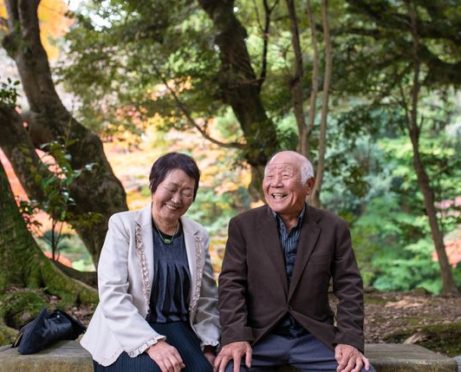
As regular readers of the Money Talk blog know, my new book, Flipping a Switch: Your Guide to Happiness and Financial Security in Later Life, is in the homestretch and due out soon, pending any printing delays associated with COVID-19.
In addition, June 19 marks exactly six months from the final day (December 19, 2019) that I set foot in my former office in New Jersey as a longtime employee at Rutgers University.
With these milestones in mind, I thought some “Barb-servations” about life after leaving a longtime employer might be useful to others planning their own life transitions (aka, “flipped switches”).
After six months (including three months under pandemic restrictions) of living the content of my book and not having an employer anymore, below are eight insights and recommendations gained by literally “walking my talk.”
Define Your “Third Third”
Do not let your later years be defined by others. These years are a journey — not a “one stop fits all” destination.
When people ask me “how’s retirement?” I gently pivot and state that I simply left Rutgers, am not retired, and am now a financial education entrepreneur.
In other words, I changed my practice setting but am as passionate as ever about remaining a player and a voice in the financial education field.
As I advise in Flipping a Switch, develop your own unique answer to the “What do you do?” question.
Plan to Succeed
Do not expect opportunities to just fall into your lap after you leave a longtime career.
Work ahead to make plans and lay “groundwork,” whether it is making contacts for continued work experiences, marketing yourself as a freelancer, choosing Twitter handles, arranging volunteer experiences, joining organizations, or moving to a new location.
Those who fail to plan, often plan to fail. Fritz Gillbert, author of Keys to a Successful Retirement, states “preparation is, perhaps, the single biggest key to success” in later life.
Create Daily Routines
Add structure to every day, preferably a big chunk of time (six to seven hours) for purposeful activities such as work, volunteering, and/or socialization.
Like “big rocks” in a jar, if these purposeful activities take seven hours, you sleep for eight hours, physical activity takes one hour; and you spend two hours on cooking/eating and chores, this leaves about the same amount of “gravel” (free time) to fill in a jar (day) as someone with a full-time job.
Bottom line: Human beings need structure, growth, and purpose to stay happy and avoid feeling “washed up” and useless.
Remain Relevant and Useful
Figure out how you want to live a purpose-filled life and contribute to the greater good. For me, that path is via self-employment.
Every day, for six months, I have included activities related to one of my 2020 goals: Stay active in the financial education field via Money Talk (my company) work projects, blogging, and social media. People remain relevant only by choosing to do so.
Be Informed
Follow advice in the book Make Retirement Work! to read a (print or online) newspaper daily. I devour The Wall Street Journal for coverage of world news, personal finance, and — more recently — issues related to COVID-19.
I’ve found that keeping abreast of current news helps keep conversations going with people when you do not have a job in common. It makes you interested and interesting.
Stay Connected
Reach out to others to develop and maintain relationships.
As a positive result of COVID-19, I have used my Zoom Pro plan extensively as a tool to connect with clients and for regular social interactions with my cousins and former colleagues. I have also listened to dozens of podcasts and webinars (that I previously would not have had time for) that feed my passion to learn new things.
Plan to Combat Ageism
Control how others perceive you.
While you cannot control wrinkles on your body, you can push back against ageism in the following ways: keeping current networks alive, remaining technologically savvy (e.g., social media), actively engaging with others and “working out loud” (i.e., posting achievements) on Twitter and LinkedIn, reading trade journals and, yes, even dyeing your hair.
Stay Healthy
Take advantage of the approximately 2,500 hours per year that people gain when they step away from a full-time career. Build in at least an hour a day for physical activity with the goal of living the highest quality life for as long as possible.
I love the fact that I can exercise now in the early morning and afternoon instead of the late evening previously, which sleep experts do not recommend.




